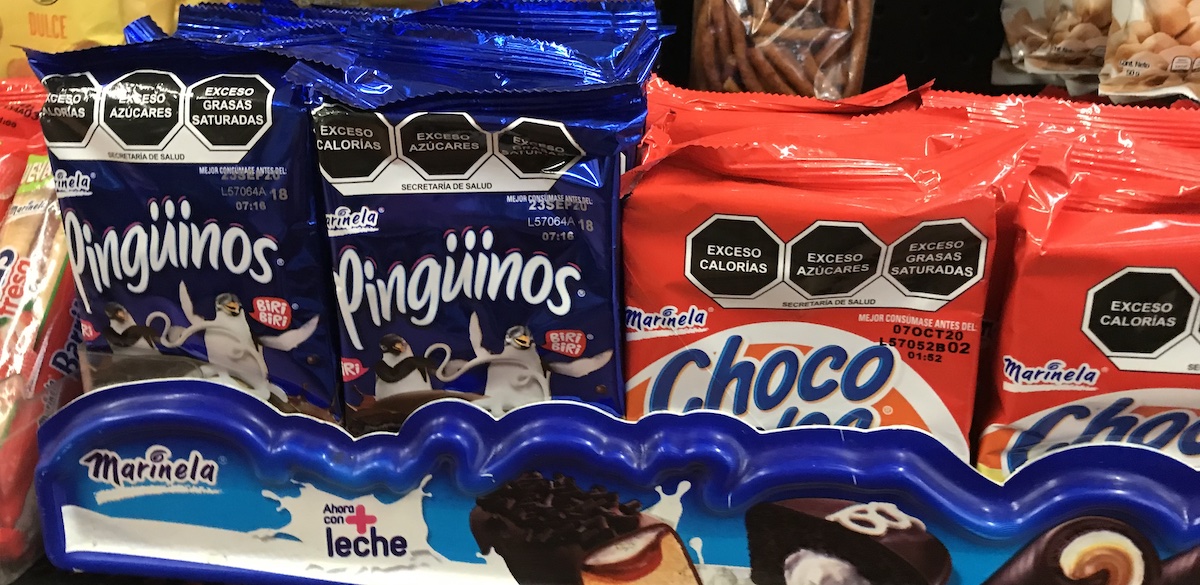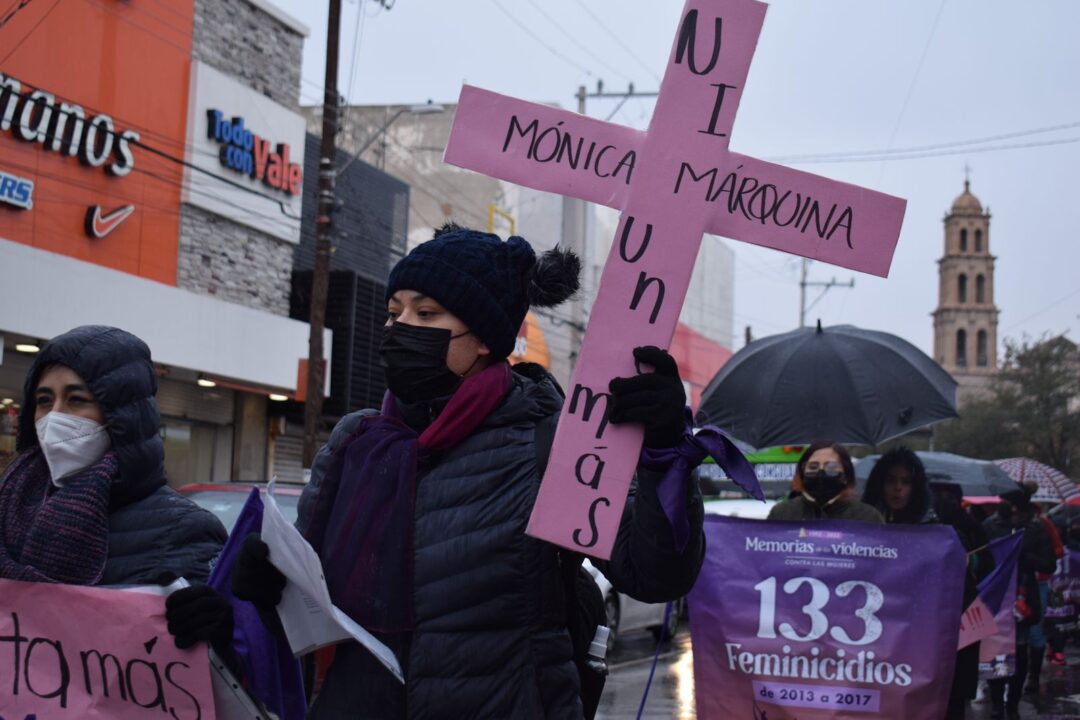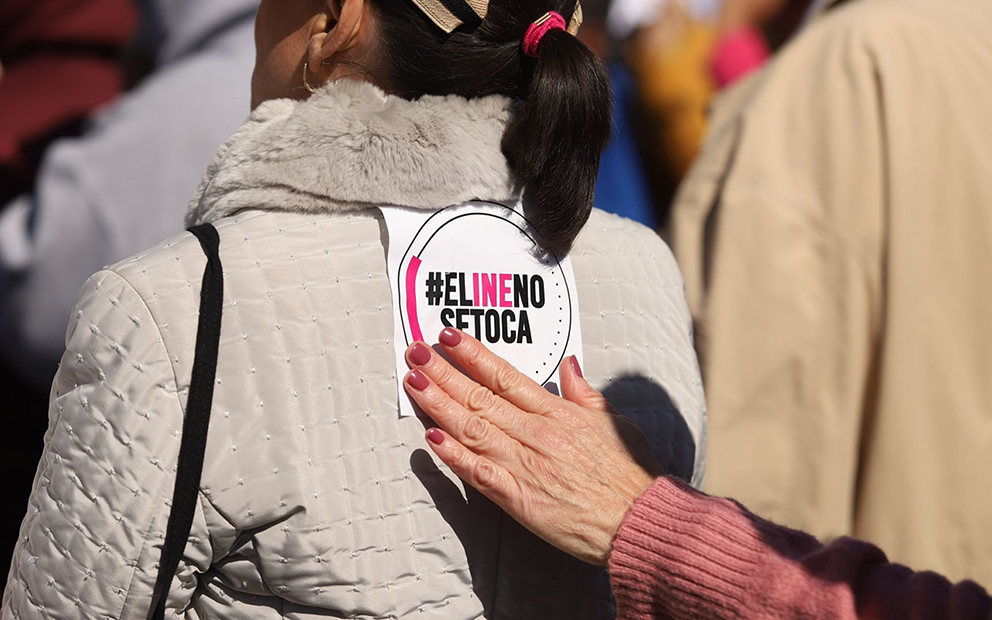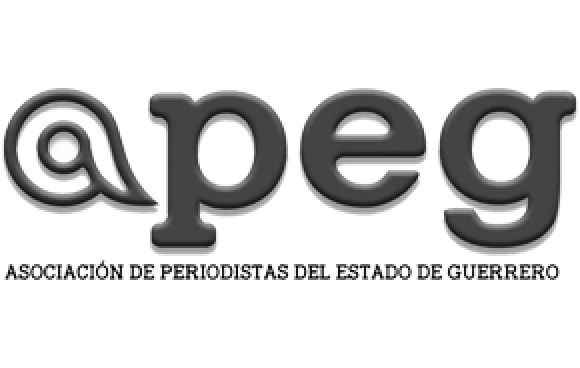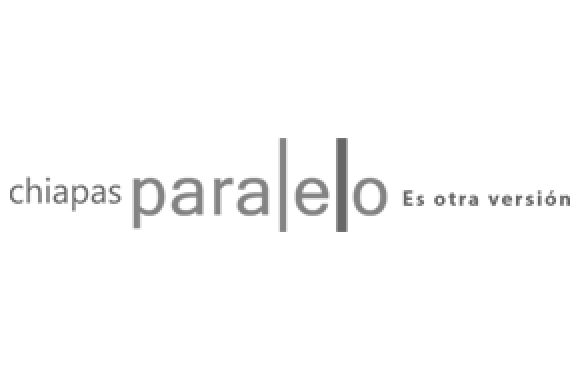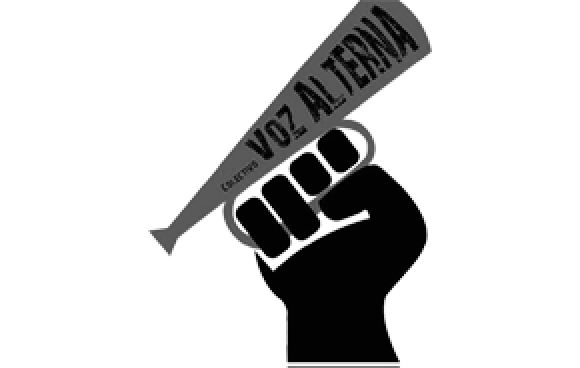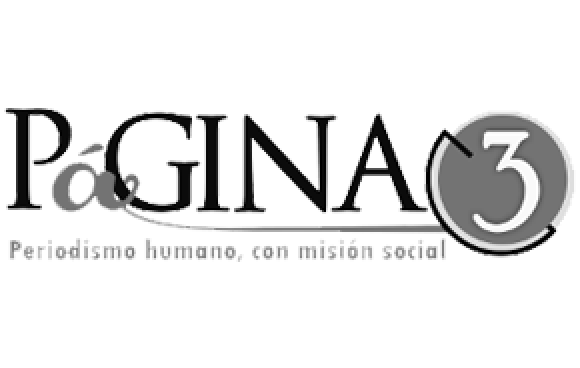Mexico’s National Institute of Public Health (INSP) rejects the processed food industry’s attempt to minimize the impact of new warning seals on packaged foods. The INSP emphasizes that the reformulation of ingredients, the creation of new products without labels, and the removal of cartoon characters on packaging should be seen as steps forward.
Text: Kennia Velázquez / POPLab, originally published by POPLab on June 25, 2021.
Photo: POPLab.
Translated by Elysse DaVega.
GUANAJUATO–The processed food industry’s attempts to undermine the impact of new warning labels on packaging are incessant. Recently, media stories have claimed the health measure hasn’t impacted Mexicans’ consumption have circulated in the press. But the National Institute of Public Health (INSP) has assured this is false, and asserted the claims are not based on sound information or studies.
The source of these industry claims is Kantar, a consulting firm that works for the big processed food companies and analyzes consumer behavior. It concluded the following: «We don’t see the labels having an impact in Mexico. It’s been six months and we’re not seeing a significant impact.» It also asserts that people continue to consume Coca-Cola, Bimbo, and other products.
In response to this, the INSP carried out a technical analysis on the information spread by the firm to explain why its conclusions are false. It highlights the following problem in the study:
1.- It analyzes by brand and not by product. The institute says that analyzing consumption by brand is erroneous due to the wide range of products they offer, «which is why, when presented altogether, it’s impossible to evaluate change caused by the labels. The labels are different depending on the products offered.»
2.- It doesn’t take reformulation of ingredients into account. One of the first accomplishments of the labels was to oblige businesses to reduce the number of harmful ingredients in their products to avoid labels that indicate excess calories, sodium, sugar and fat. According to Kantar’s information, Bimbo is the second-highest consumed brand in Mexico. However, it doesn’t mention that 82% of its products have been reformulated. «Consumer evaluation should be performed with distinctions between labelled and unlabelled products, pre- and post-implementation,» the INSP said.
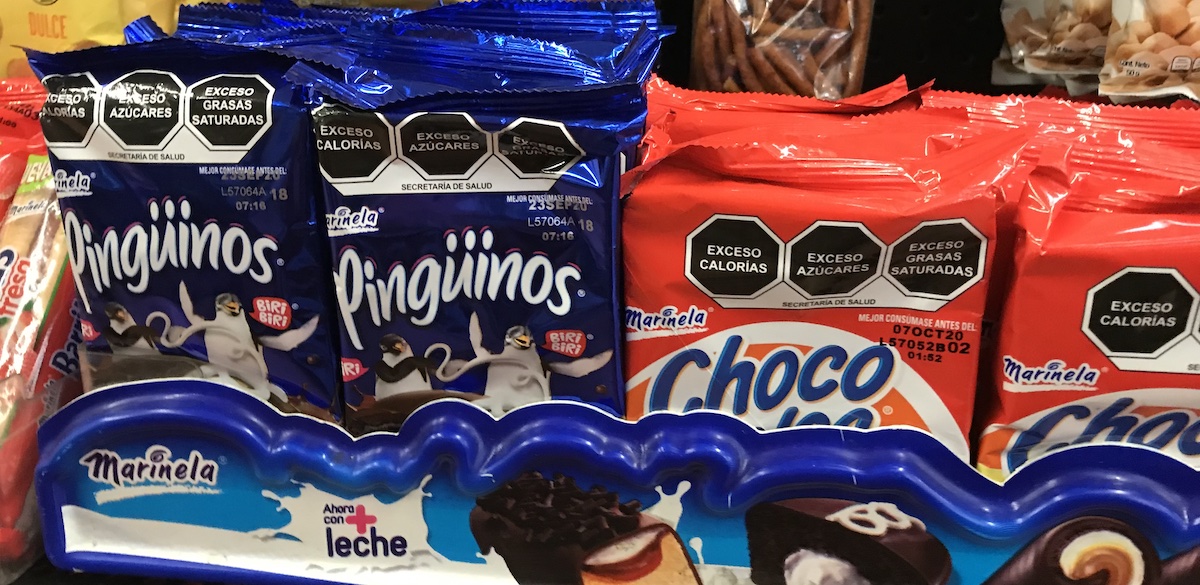
3.- It doesn’t differentiate between new and old products. Companies have also developed products without labels that have been released since NOM-051, the law that introduced the labels, came into effect. This should also be considered in industry analysis because these products «have no sales prior to the implementation period of the warning labels.» Including new products in the analysis could skew the results, the technical report says.
4.- It doesn’t allow ample time for implementation. The INSP says that to measure the results and impact of the labels, and before deciding whether or not the labelling performs as it should, a period of at least one to two years of implementation should be observed. This is especially true because the passing of the NOM-051 has been repeatedly postponed, the first phase of the new regulations wasn’t fully implemented until June 1st. This is why «it’s not appropriate to declare a lack of impact in that same month.»
The institute says that it’s currently performing a cohort study «to further study a population group, profile its diet, and types of foods eaten before and after the implementation of the warning labels.» It also reports that Mexican consumers have substituted labelled products for less-labelled or unlabelled products.
Other advantages of the warning seals
Aside from the INSP report, other benefits of the labels have surfaced, such as the availability of consumer information, which is made accessible in a quick and simple manner.
The labels have also contributed to the protection of children, who are especially vulnerable to junk food advertisements. El Poder del Consumidor (The Power of the Consumer), a civil organization, recently released consumer monitoring that it carried out over a period of two months in Mexico’s central and Bajíllo regions.
The results show that the use of cartoon characters on packages with labels «has dropped from 92.5% to 24.7% in cereals, from 60% to 0% in milk, and from 45% to 1.7% in drinks targeted to kids. With the implementation of NOM-051, children are less exposed to the use of cartoons as persuasive tactics to influence their consumption.»
Further, products with labels are not longer allowed to claim health association approval or that they promote growth or nutrition, while claims of vitamin or mineral content must be less visible.
It’s important to recognize that the implementation of warning labels in Mexico was celebrated by international organizations such as the World Cancer Research Fund, which stated the measure will «reduce preventable deaths due to cancer and other non-transmissible diseases.» The measure was also celebrated by UN agencies such as UNICEF and the Pan American Health Organization (OPS), among others.
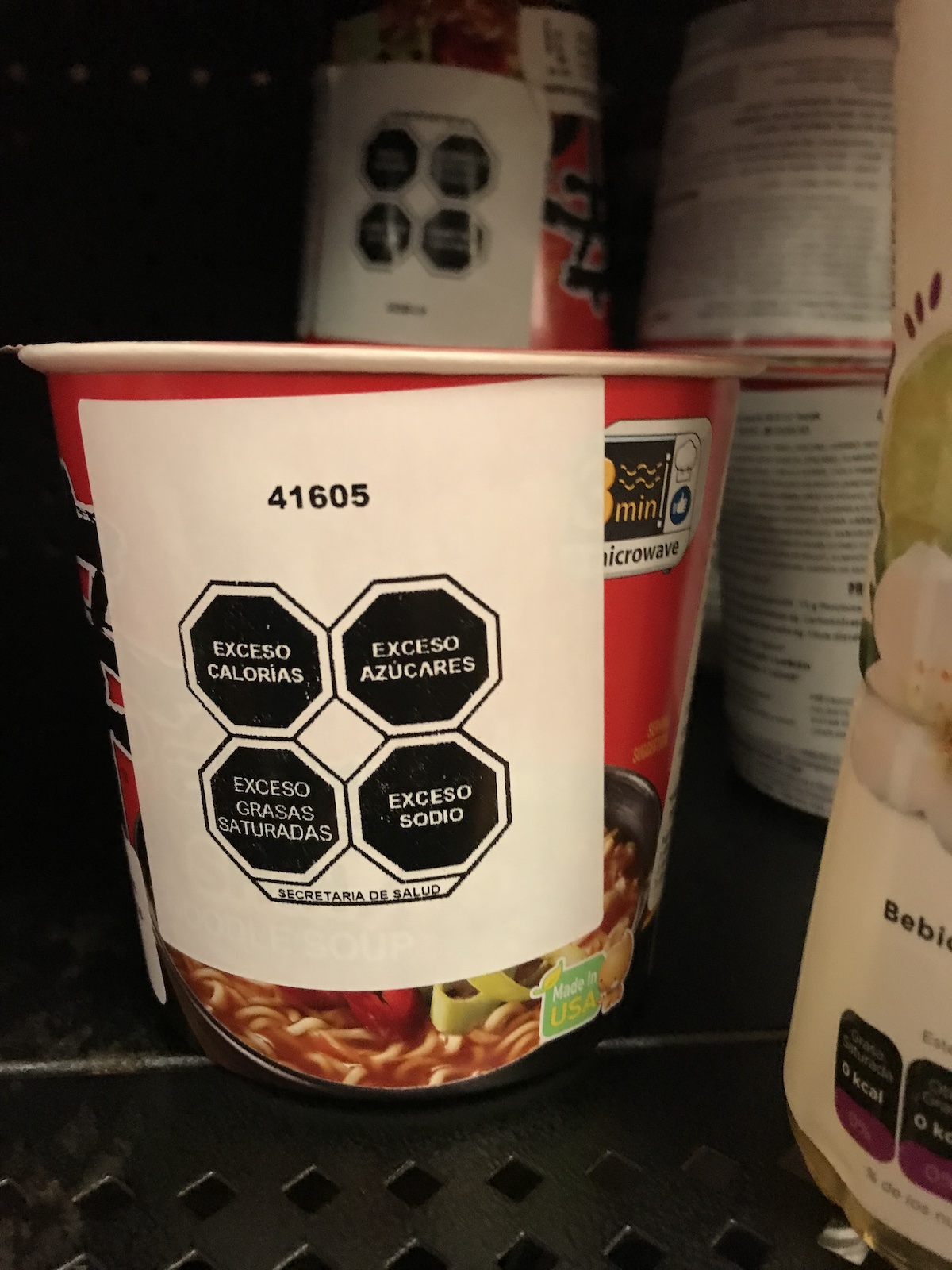
According to the OPS, it is urgent to cut down on excessive consumption of the harmful chemicals found in processed foods. To achieve this, laws and regulations need to be used to lower demand and availability of these products. «To prevent nutritional imbalances, one of the key policy instruments to regulate these products is the use of labels on the front of packaging that informs consumers of excessive sugars, saturated, trans, and total fats, and sodium,» the organization reports.
A recent article from The Lancet stresses the importance of warning seals on foods, saying that combined with taxes on high-calorie products, advertisement regulation, and other measures taken in Latin America, consumption of ultra-processed foods has fallen.
Warning labels were introduced five years ago in Chile, which according to official data led to an almost 25% decrease in domestic purchases of sugary drinks in the first year. According to an INSP study, the labels encourage informed decisions and are easily understood by low- and middle-income consumers in Mexico.
Solid scientific proof is still needed in response to the conclusions reached in the studies financed by the same industry that’s being regulated. But the wait is worthwhile, because the possible returns are great.
This report was originally published by POPLAB, which is part of the Media Alliance organized by Periodistas de a Pie. You can read the original here.
Click here to sign up for Pie de Página’s bi-weekly English newsletter.
Ayúdanos a sostener un periodismo ético y responsable, que sirva para construir mejores sociedades. Patrocina una historia y forma parte de nuestra comunidad.
Dona

